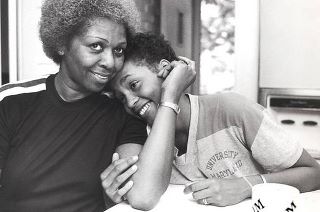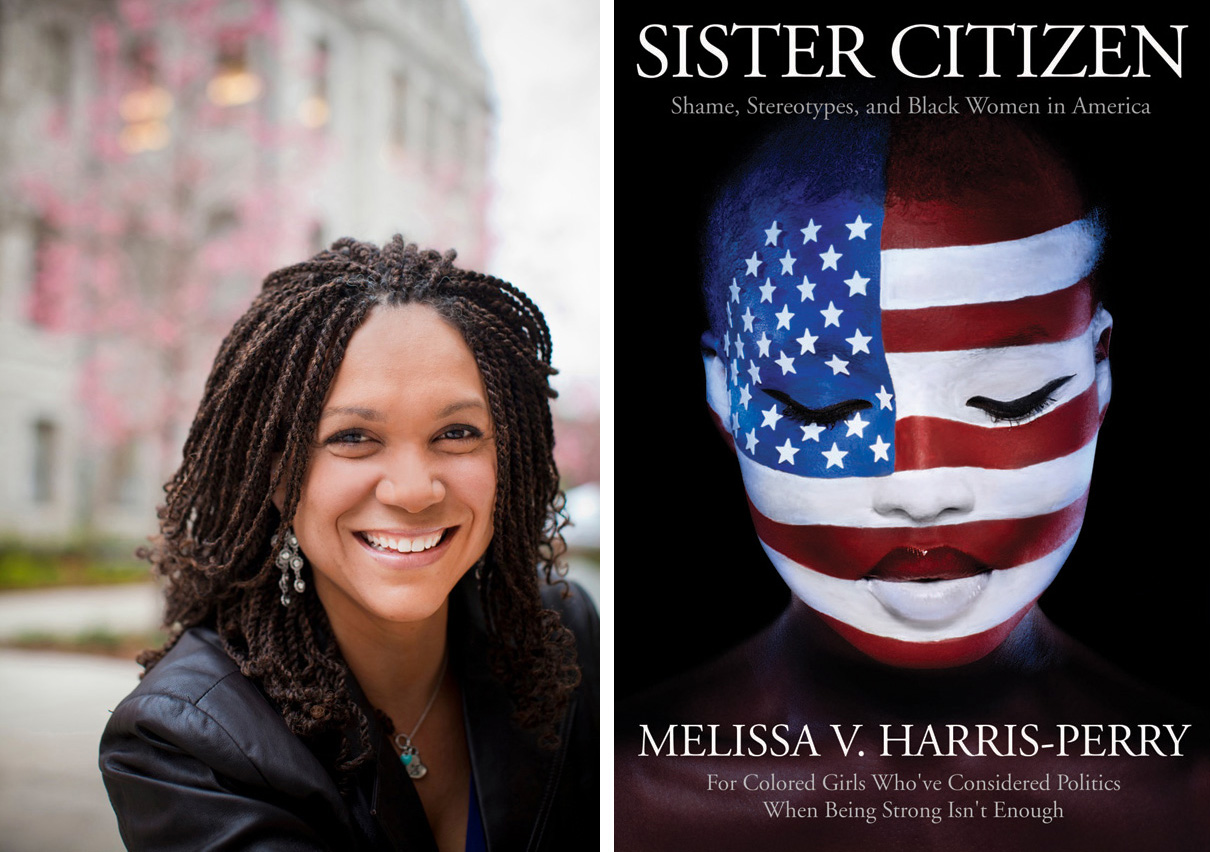
This past week, I found myself swept in an emotional whirlwind witnessing Whitney’s homegoing while remembering that she was not even in the ground before the Fox-affiliated shock jocks called her a babbling idiot, bag lady, and a crack ho that should have died years ago. From AM talk radio to morning cable television, a Fox News anchor “jokingly” told Rep. Maxine Waters (D-CA) to “step away from the crack pipe” to squash her criticism of a racist conservative right. And right as I prepared myself for the first Valentine’s Day unhitched in years, I heard more misogynoir (i.e., hatred of Black women) news from the pimp-like-rapper Too Short who “advised” middle school boys to “turn girls out” in a video posted to the XXL hip hop website.
Where is the love?
This past week, I would have been a Black woman undone if I did not turn to other women of color to savor the soul-stirring, love-filled acts of solidarity in a month that has been so soured by hate.[1]
While folks are giving kudos to a masterful, out-of-character performance by actor Tyler “Madea” Perry, I want to remember Kim Burrell’s loving act to her sistah-friend. The Texas-born gospel singer transformed a song that could serve as the title track for the civil rights movement; she changed Cooke’s A Change is Gonna Come to one that not only spoke about Whitney as a daughter, friend, and mother, but it spoke to the lived reality of countless Blackgirls who watched her metallic casket and mourned for the Black girl we know (inside) and for the Black woman she/we dared to be. I believe Burrell’s spirit-driven interpretation will stand as a counter-narrative against the lusty, flesh-bound and career-centric monologues offered by some menfolk. (Side eye to you Clive.) Kim Burrell might have singlehandedly replaced my Denzel dreamscape and my cinematic memory of Malcolm X’s assassination with her lifting tribute to a fallen (but not forgotten) star.
This past week ended with the debut of a self-proclaimed Black feminist in her cable show simply called, Melissa Harris-Perry. Let’s just say if Oprah is America’s honorary mother, then Prof. Harris-Perry is slated to be our teacher because she was schooling a national audience about intersections of race and gender, and she provided a much-needed Black feminist perspective, which is often offered by Black men (if included at all). When I tuned in to her show, she warned her audience that we’d enter “nerdland” or the place where political commentary is spliced by definitions, old videos, and graphs to add context to oversimplified, hot-button topics. After an emotional whirlwind, it feels lovely to say I will be (at) home on the weekends where folks can hate (yes, I’m looking at you Cornel West), but I can turn on and turn to Black women-centered love.

—-
[1] This past week I was able to trade trash talk and blackgirl giggles, remember-when stories, love-strong hugs, eye-to-eye recognition, and women of color wisdom with Stephanie Troutman, Bettina Love, Elaine Richardson, Elizabeth Mendez Berry, and Joan Morgan. I am enriched by your generosity and your creative, intellectual and politically-grounded work.

There has been a revolting morbid sense of entitlement that people have shown at Whitney’s passing. Grave-dancing is not a virtue and karma is its own reward.
Thank you for this. It says everything my stammering fingers couldn’t type.
Such a beautiful tribute to Whitney and countless other black women who love and are loved.
I thought BET did a nice job of remembering Whitney as well.
Cece Winan’s musical contribution can be included as well. Cece’s presence in Whitney’s life is also important to realize as an intercessor and long time confidante, though in the funeral service her presentation was perceived as less performative than Pastor Burrell and A. Keys by the larger viewing audience… Winans’ ability to “flow” was seamless. To my recollection, she did not explicitly state that she diverged from the program because she had unspoken liberty to do so as longtime family.
This is beautiful, thank you.
The Melissa Harris-Perry show airing just prior to the funeral seems like the universe working some magic. Just before Whitney’s homegoing service the words “black feminist scholar” were uttered on a nationally syndicated cable television program by a black female host of a news program. To me this was a critical moment where I had to pause. I felt that I was crossing a bridge, and that Whitney’s monumental life and legacy would forever be part of the foundation.
Interested to hear why you dislike Cornel West